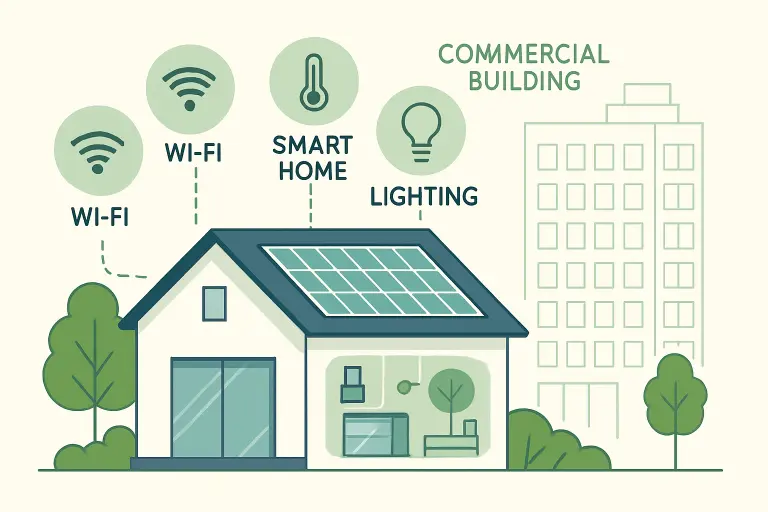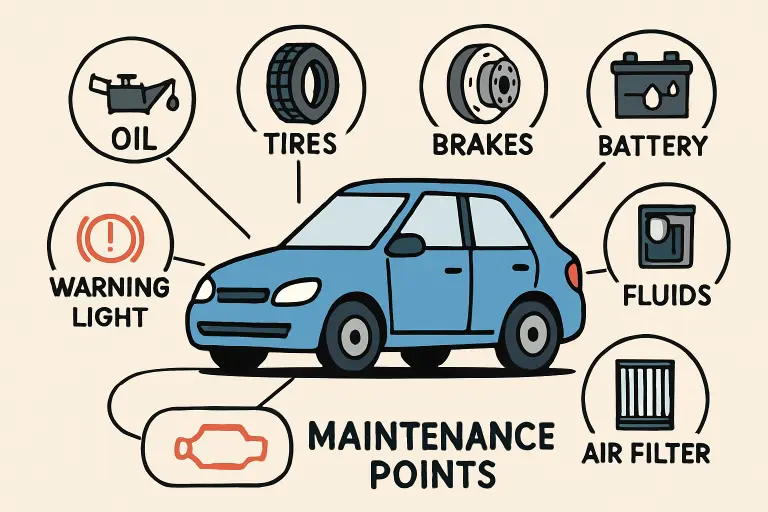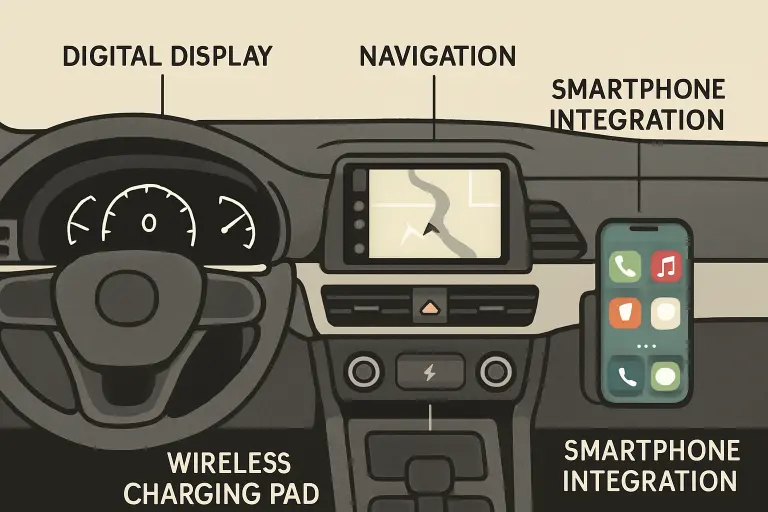Table of Contents
Key Takeaways
- Understand the benefits and drawbacks of electric vehicles (EVs).
- Identify different types of EVs and their unique features.
- Learn about the future of EV technology and infrastructure.
- Evaluate the environmental impact of adopting EVs.
Introduction to Electric Vehicles
The automotive world is rapidly evolving, with electric vehicles (EVs) leading toward a sustainable future. This guide aims to provide a comprehensive overview of EVs, including their benefits, types, and what lies ahead in this exciting industry. Significant brands are embracing the shift to electric vehicles, showcasing the industry’s commitment to greener alternatives. As more consumers become environmentally conscious, the market for EVs is expected to grow exponentially, making it crucial to stay informed about this shifting paradigm.
The Benefits of Electric Vehicles
Electric vehicles offer several advantages over traditional petrol and diesel cars. One of the most significant benefits is the reduction in emissions, which contributes positively to the fight against climate change. Additionally, EVs tend to have lower running costs. EVs are often more affordable to run because of cheaper electricity than gasoline and fewer moving parts, meaning lower maintenance costs over time. Owners frequently report satisfaction with their enhanced driving experience, characterized by quiet engines and smooth acceleration. Checking out Dodge dealers in Orlando may offer additional insights and possibilities for those interested in exploring new vehicle options. Moreover, many governments offer incentives like tax credits and rebates, making the initial investment in EVs more attractive than ever.
Types of Electric Vehicles
Battery Electric Vehicles (BEVs)
BEVs run entirely on electricity and have a rechargeable battery. These vehicles are the epitome of green driving and typically offer the most extended all-electric range. BEVs require no gasoline and have zero tailpipe emissions, making them ideal for reducing your carbon footprint. Popular models like the Tesla Model 3 and Nissan Leaf have set benchmarks in this category, showing impressive range and advancements in charging capabilities. Suppose you’re looking for a Dodge dealer Orlando. In that case, several options are available, such as Orlando Chrysler Dodge Jeep Ram and Napleton CJDR in Kissimmee, which serve the greater Orlando area.
Plug-In Hybrid Electric Vehicles (PHEVs)
PHEVs can run on electricity and fuel, offering more flexibility for long-distance travel where charging stations may be scarce. They are an excellent bridge for transitioning from traditional to fully electric vehicles. The ability to switch between electricity and gasoline provides an “insurance policy,” reducing range anxiety. Vehicles like the Chevrolet Volt and Toyota Prius Prime are prime examples, allowing consumers to enjoy the best of both worlds.
Hybrid Electric Vehicles (HEVs)
HEVs use both a traditional engine and an electric propulsion system, but they are unable to be replenished from an outside source. Instead of that, they recharge their batteries by using regenerative braking and the internal combustion engine. While not fully electric, HEVs offer improved fuel efficiency and lower emissions than standard gasoline vehicles.
Challenges Faced by Electric Vehicles
Despite their advantages, EVs have challenges. One significant hurdle is the limited range offered by many models. Yet, progress in battery technology is constantly enhancing this factor. Furthermore, there is still a worry about the presence of charging infrastructure, even though it is slowly growing. Public charging stations are becoming more common in urban areas, shopping centers, and long-distance highways. However, rural areas still lag in this aspect, making it challenging for EV owners in less populated regions.
Future of Electric Vehicle Technology
The future of EVs looks promising, with continual advancements in battery technologies and an increasing commitment from governments and corporations towards sustainable transportation. Innovations like solid-state batteries and wireless charging are expected to revolutionize the industry. Solid-state batteries promise higher energy densities and faster charging times than current lithium-ion batteries. Additionally, as more resources are dedicated to EV research, consumers can expect more efficient and affordable options shortly. Wireless charging technologies, which allow EVs to charge without being plugged in, are also in development, further simplifying the EV experience.
Environmental Impact of Electric Vehicles
One of the most significant advantages of electric vehicles is their potential to reduce overall carbon emissions. EVs produce zero tailpipe emissions, which can significantly decrease air pollution levels in urban areas. Furthermore, using renewable energy sources for charging EVs can magnify this environmental benefit, making it a greener option overall. In nations relying mainly on renewable energy for electricity, electric vehicles have a much smaller carbon footprint compared to traditional gasoline-powered cars. EVs have a significant overall effect on the environment, leading to cleaner air, reduced dependence on fossil fuels, and a more sustainable future.
Government Policies and Incentives
Many governments worldwide are introducing policies and incentives to encourage EV adoption. These may include tax benefits, rebates, and even free parking for EV owners. These actions are intended to increase the accessibility and affordability of electric vehicles for the average consumer, encouraging a transition towards more environmentally friendly options. Regions that have adopted aggressive incentives have seen a notable rise in EV acceptance and usage, positioning these areas as leaders in sustainable transportation. Some countries are also setting timelines to phase out the sale of new internal combustion engine vehicles entirely, underscoring the urgency for this transition.
Real-Life Experiences
Many EV owners report positive experiences, highlighting the ease of use and cost savings associated with electric vehicle ownership. For instance, one user from New York shared that they saved approximately $1,200 annually on fuel costs after switching to an EV. Another driver mentioned the joy of a quieter and smoother ride compared to traditional vehicles. Personal testimonials often emphasize the advantages of EVs in daily life, underlining their practicality and efficiency. These real-world experiences serve as compelling evidence of the benefits of electric vehicle ownership.
Check out this comprehensive report for more detailed insights on electric vehicle trends and innovations.































































































































































































































































































































































































































































































































































































































































































































































































































































































































































































































































































































































































































































0